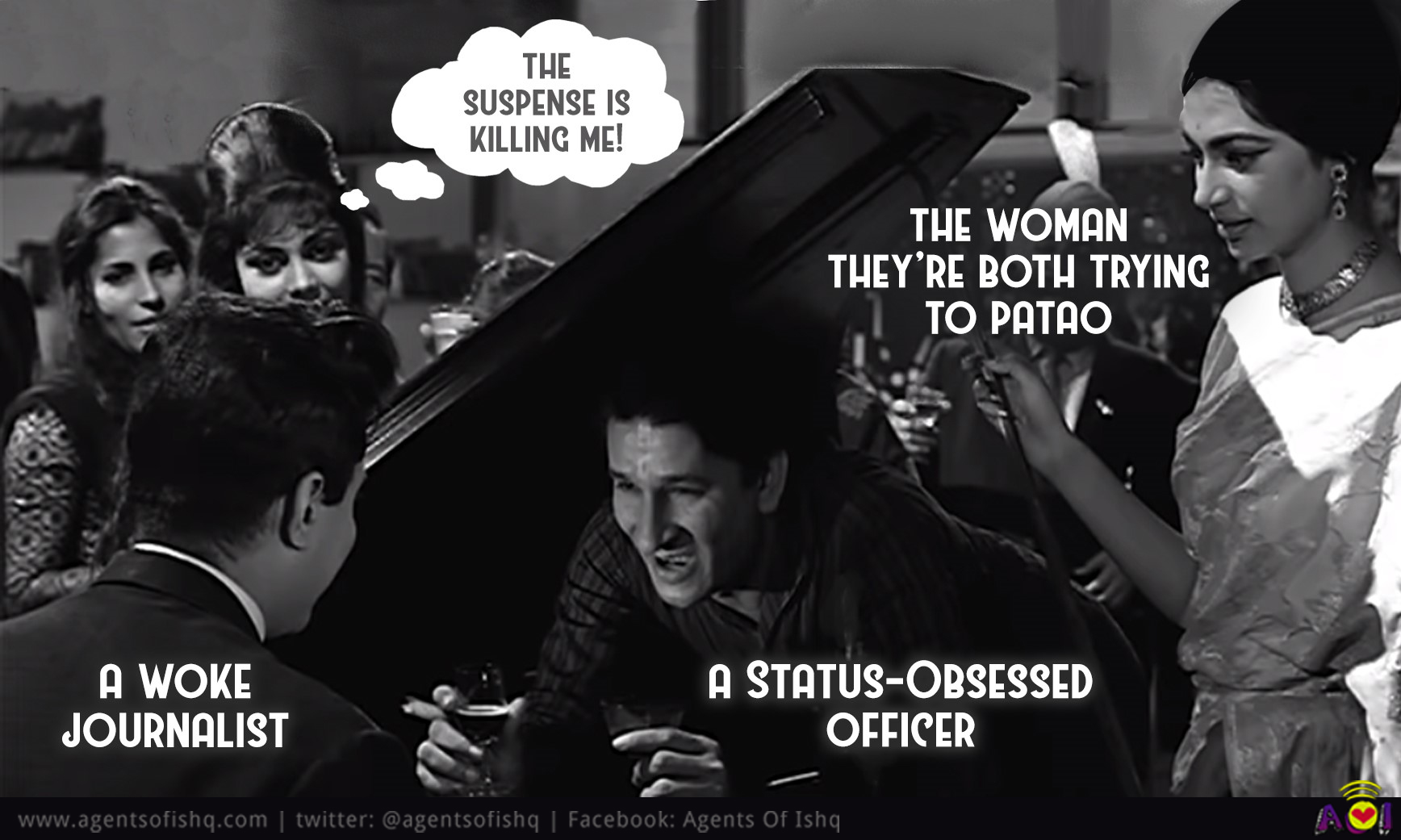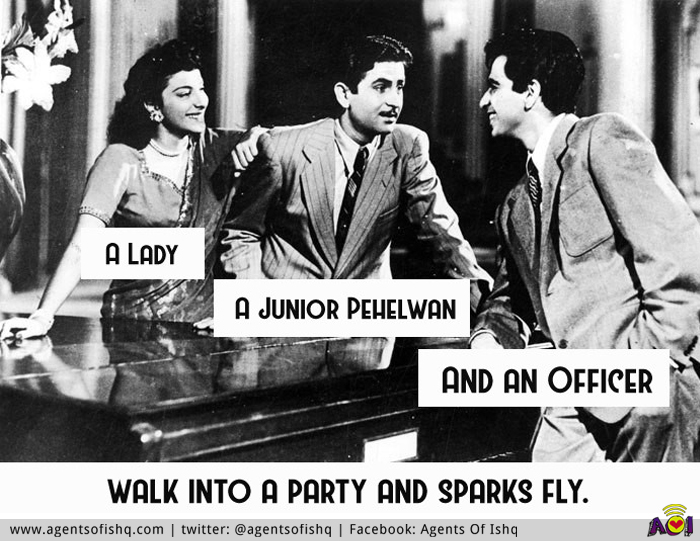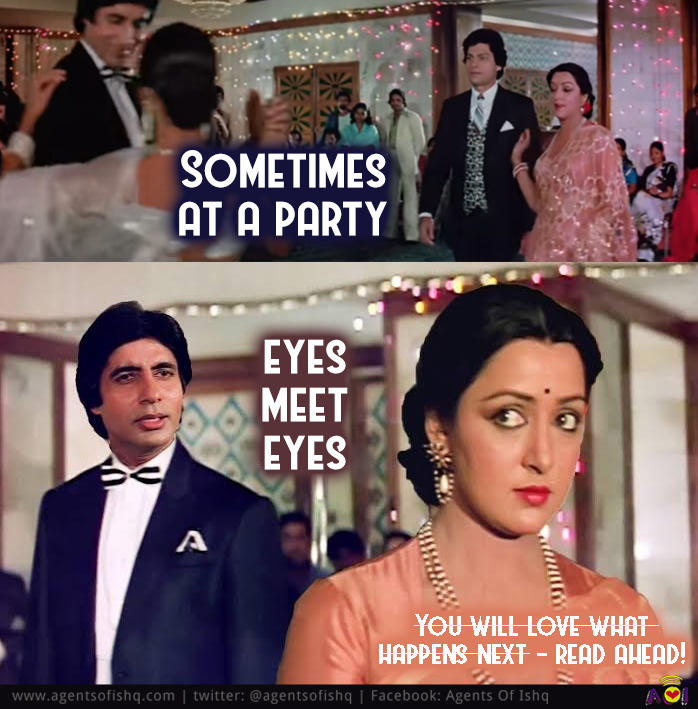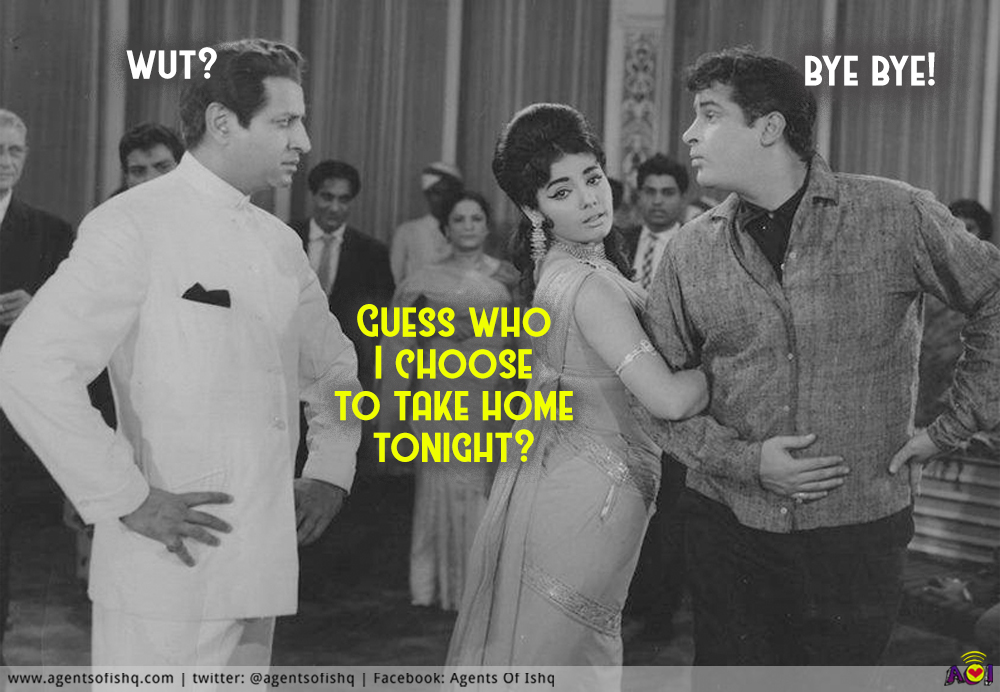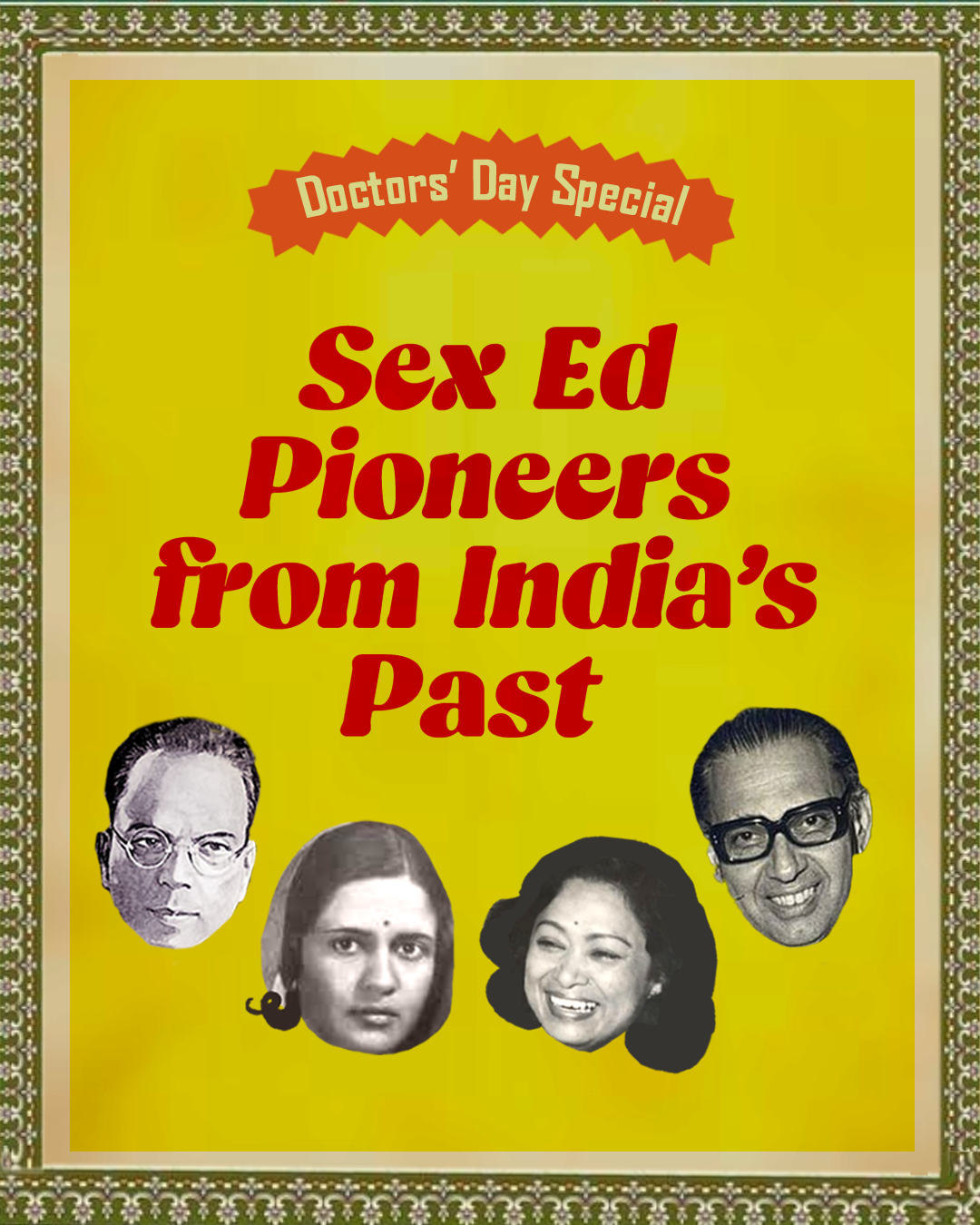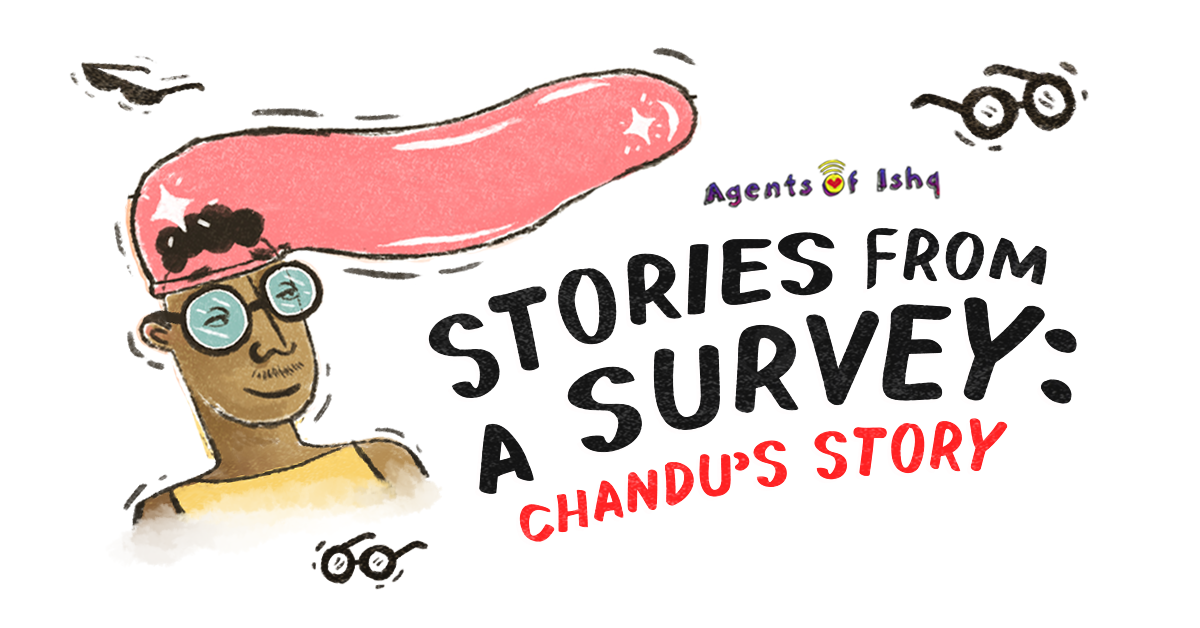Kahin pe Nishana, Kahin Pe Nigahein
A party, flirtation, class, and a romantic twist.
By Aparna Kalra
Abhishek wasn’t too happy when the doorbell rang. It was only seven, and he had his hands full, getting things ready for the party. He hated early guests; they spoilt the mood, they flapped around while you made last-minute preparations, they poked their noses into what didn’t concern them. Chetan stood at the door — in full uniform. "I'm here to help," he said with a smile, saluting dramatically. “Can’t leave you alone to cope”.Abhishek hadn’t always been solitary. Chetan must know that, he felt. He was the first to get a girlfriend in school, at a time when Chetan got excited just sitting next to a girl. Girls defined success — and Abhishek had been successful. He was quick, witty, outgoing. Jobs arrived, or work as it was called these days. Both qualified as chemical engineers, or unwilling engineers, as all engineers are wont to be in the country. Their first assignment meant interaction with ‘labour’. Anyone out of their social strata necessitated placing themselves above or below. So did the factory hierarchy: as shift engineers they had to shout at workers to get a move on so production targets got met.“This is unclassy. We will never make an impact on society,” Chetan had said in dismay on the factory floor. “I wasn’t born to make Bournvita.” Abhishek didn’t see anything wrong with making something. But “making an impact” sounded cooler.He and Chetan weren’t average engineers any more. Abhishek was a journalist; Chetan had been one. He soon got disenchanted with waiting in leaky and creaky antechambers of powerful people — for that one quote, one newsbreak. “I want to be powerful myself,” he declared. “How many times will you keep changing professions?” Abhishek had asked peevishly.Chetan had his wish. Abhishek couldn’t even request Chetan to lay food out on the table, he would smile condescendingly and say “Of course. I do everything ordinary people do”, and then proceed smoothly to ask his general factotum — how long would common people of India subsidize these Maharajah lifestyles — to “do everything.”Had he begun to dislike his friend? The thought surprised Abhishek. An emotion, notquite dislike, unnamed, unrecognized, had festered in him, he realized. He glanced at the single red rose Chetan had deposited after filling out a jug with water. It looked silly.A familiar tread on the stairs, a knock. Abhishek opened the door to Yayati.She filled the room, as usual.She was looking good, as usual.She ignored her impact on Abhishek, as usual.
Score:
0/
Related posts
 How To Smell And Taste Good Down There
Partner going down on your buffet? Tips for a yummy garnish!…
How To Smell And Taste Good Down There
Partner going down on your buffet? Tips for a yummy garnish!…
 मैंने खुशी-खुशी अपना दिल उनको दिया, लेकिन उनको चाहिए थे बच्चे और एक देसी बहू
स्थायी बीमारी में डेटि…
मैंने खुशी-खुशी अपना दिल उनको दिया, लेकिन उनको चाहिए थे बच्चे और एक देसी बहू
स्थायी बीमारी में डेटि…
 If Life is Box Full of Chocolate Boys!
#HappyChocolateDay to the men who smile, are vulnerable, and…
If Life is Box Full of Chocolate Boys!
#HappyChocolateDay to the men who smile, are vulnerable, and…
 What is Fellatio? The AOI Sex Glossary
Is it ice-cream ka flavour, like pistachio? Well, it does ha…
What is Fellatio? The AOI Sex Glossary
Is it ice-cream ka flavour, like pistachio? Well, it does ha…
 Sorry Thank You Tata Bye Bye - A Music Video About Age of Marriage In Collaboration With Oxfam India
Sorry Thank You Tata Bye Bye - A Music Video About Age of Marriage In Collaboration With Oxfam India
 Ammuma’s Haircut and Her Romantic Past
If Ammuma's hair was one to divulge, what would it reveal ab…
Ammuma’s Haircut and Her Romantic Past
If Ammuma's hair was one to divulge, what would it reveal ab…
 It Was ‘Twilight’. I Woke Up Bisexual.
How one can stumble upon one's (bi)sexuality with the help o…
It Was ‘Twilight’. I Woke Up Bisexual.
How one can stumble upon one's (bi)sexuality with the help o…
 To All the Boys I Couldn't Love Before
What fleeting connections with many interesting men tell you…
To All the Boys I Couldn't Love Before
What fleeting connections with many interesting men tell you…
 Tell Me Tarot, Will He Ever Come Back?
After Manjari is ghosted, all search for closure leads to he…
Tell Me Tarot, Will He Ever Come Back?
After Manjari is ghosted, all search for closure leads to he…
 How My Girlfriend's Abortion Made Me A Better Man: A Comic
M's story about a life-changing incident.
How My Girlfriend's Abortion Made Me A Better Man: A Comic
M's story about a life-changing incident.
 Do You Know How to Give Women Orgasms?
This app will teach you how and we got some Agents to try it…
Do You Know How to Give Women Orgasms?
This app will teach you how and we got some Agents to try it…
 The AOI Queer Reading List: Desi Languages Version
Queer readings from non-English Indian languages.
The AOI Queer Reading List: Desi Languages Version
Queer readings from non-English Indian languages.
 What Makes Your Sexual Confidence Go Up and Down
Sexual confidence is like a Snakes and Ladders Game
What Makes Your Sexual Confidence Go Up and Down
Sexual confidence is like a Snakes and Ladders Game
 KISS MEIN KITNA HAI DUM: 19 KISS POEMS
Kisses that go from sweet to saucy, tender to raunchy, misch…
KISS MEIN KITNA HAI DUM: 19 KISS POEMS
Kisses that go from sweet to saucy, tender to raunchy, misch…
 Savita Bhabhi and I: A True Love Story
Here is something you should know about me. I wrote three st…
Savita Bhabhi and I: A True Love Story
Here is something you should know about me. I wrote three st…
 How Posing in the Nude Changed My Life
A young gay man who hates being touched, is awkward about ha…
How Posing in the Nude Changed My Life
A young gay man who hates being touched, is awkward about ha…

